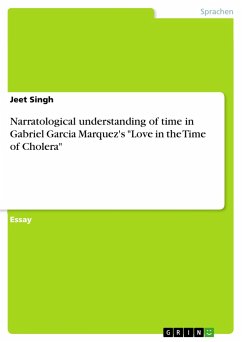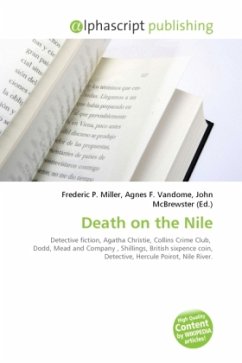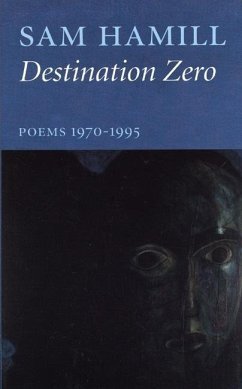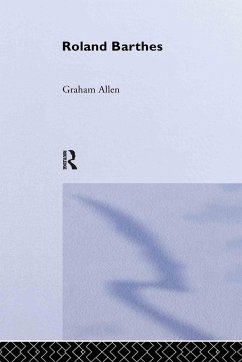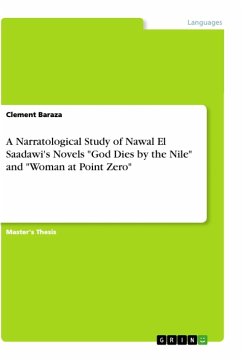
A Narratological Study of Nawal El Saadawi's Novels "God Dies by the Nile" and "Woman at Point Zero"
Versandkostenfrei!
Versandfertig in 1-2 Wochen
47,95 €
inkl. MwSt.

PAYBACK Punkte
0 °P sammeln!
Master's Thesis from the year 2015 in the subject Literature - Middle East, , language: English, abstract: This is a narratological study of "God Dies by the Nile" (1985) and "Woman at Point Zero" (1982) by Nawal El Saadawi, an Egyptian female writer. The study explores the narrative presentation of Saadawi's struggle for women's self-identity in the male dominated society. The study identifies and analyses the uses of aspects of the narrative design employed by Saadawi: namely homodiegetic narration and heterodiegetic narration in the two selected novels. The narrative design of the two novel...
Master's Thesis from the year 2015 in the subject Literature - Middle East, , language: English, abstract: This is a narratological study of "God Dies by the Nile" (1985) and "Woman at Point Zero" (1982) by Nawal El Saadawi, an Egyptian female writer. The study explores the narrative presentation of Saadawi's struggle for women's self-identity in the male dominated society. The study identifies and analyses the uses of aspects of the narrative design employed by Saadawi: namely homodiegetic narration and heterodiegetic narration in the two selected novels. The narrative design of the two novels were then analyzed against major themes such as corruption, women struggle for self-identity, oppression, female genital mutilation and prostitution. The analysis was guided by feminist narratology, a strand of narratology, a theory that explores how narrative functions. The objectives of the study were: to analyse how the use of homodiegetic narration presents particular themes in "Woman at Point Zero" (1982), to analyse how the use of heterodiegetic narration in "God Dies by the Nile" (1985) presents particular themes. Methods that were used in carrying out the research were interpretation, analysis and conceptualization through a close reading of the two texts. All were based on a qualitative research. Purposive sampling design was used to identify material for analysis. Samples were deliberately selected from Saadawi's novels based on the degree of intensity in the narrative designs. In establishing how the use of homodiegetic narration presents particular themes in "Woman at Point Zero" it was observed that the narrator is an overt narrator who narrates everything that happened to her. She concentrates on her own experiences which are quite genuine. It is from these genuine experiences that themes of oppression, female genital mutilation, women fight for self-identity and prostitution are constructed. In "God Dies by the Nile" the narrator enjoys the power of omniscience and she is therefore, present at every stage of action of all characters in the novel. The narrator reads their actions and minds and it is from this observation that the theme of oppression and corruption are brought out.






